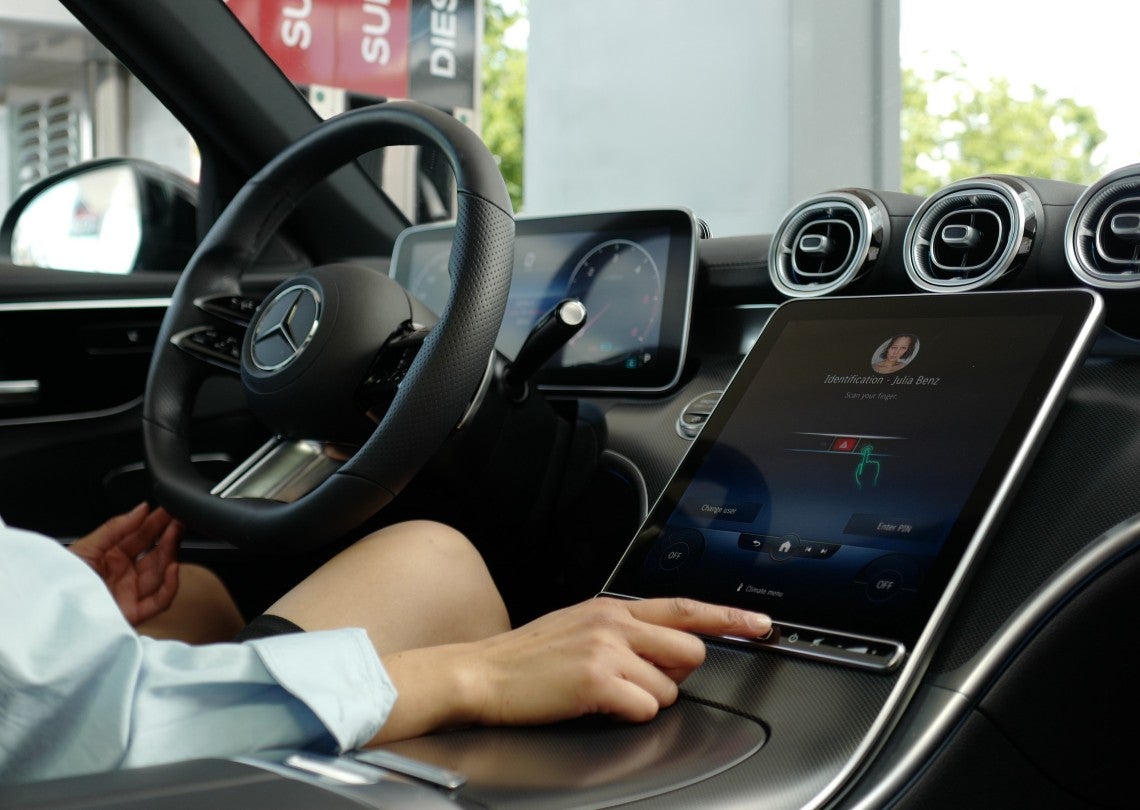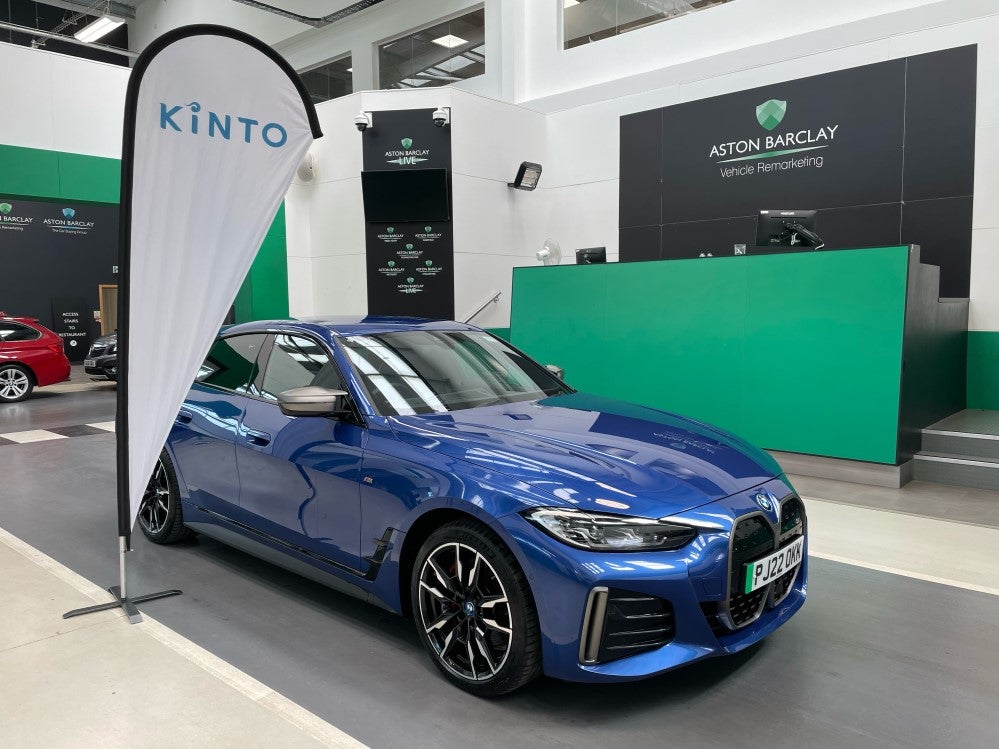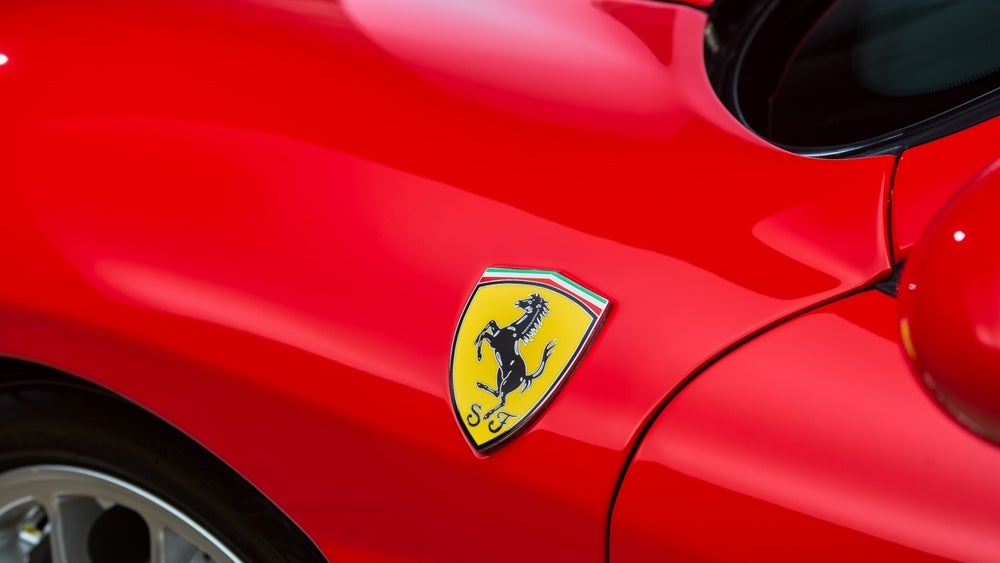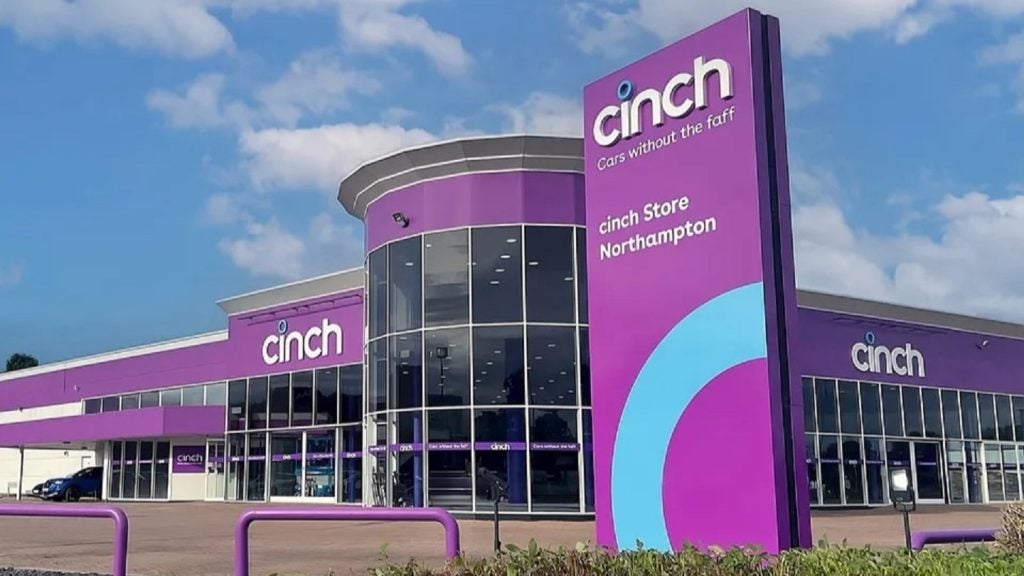
Mercedes-Benz has introduced in-car biometric payments for fuel through a partnership with credit card giant Mastercard.
This follows the brands’ partnership with Visa in March 2023, allowing payment of digital services and on-demand hardware upgrades via in-car fingerprint sensors.
Under the Mastercard arrangement, drivers can use fingerprint sensors to make payments via the carmaker’s Mercedes Pay+ digital payment service, eradicating the need for PIN entry or the use of a smartphone to verify payments.
Users simply need to pull into an accepted fuel station and switch off the engine for the payment system to appear on the dashboard. The service is initially available in Germany at over 3,600 service stations.
Mercedes Pay+ enables customers to make payments using a sensor that is available as part of the MBUX infotainment system in Series 223, 206, 254 and 232 models. The system utilises Mastercard’s Secure Card on File technology to ensure security.
Explaining that security, Jorn Lambert, Chief Digital Officer at Mastercard, told Motor Finance Online: “The real card number is never stored in the vehicle or used for a transaction. Tokens are used as placeholders for real card data; a token replaces the actual number of the physical card and is unique … This means that criminal payment attempts cannot be made on other channels because they simply do not work there.”
How well do you really know your competitors?
Access the most comprehensive Company Profiles on the market, powered by GlobalData. Save hours of research. Gain competitive edge.

Thank you!
Your download email will arrive shortly
Not ready to buy yet? Download a free sample
We are confident about the unique quality of our Company Profiles. However, we want you to make the most beneficial decision for your business, so we offer a free sample that you can download by submitting the below form
By GlobalDataThe announcement comes as a new study has raised concerns about increased data harvesting by car companies and a lack of cybersecurity in the motor industry.
Announcing the introduction of the feature, Mercedes-Benz cited market research it carried out with Mastercard that found that half of 18-39-year-olds would pay for goods and services via a smart touchscreen in their car. This therefore helps to capture a demographic with growing purchasing power, and it aligns with the gamification preferences of Gen Z identified in GlobalData’s thematic report on Gen Z.
While previously in-car fuel payments were only possible via apps such as BP‘s BPMe, via which users can earn rewards for buying more petrol, the Mercedes’ partnership with both Mastercard and Visa integrates payments with the car’s hardware and software. Similar to the switch from cash cards and then mobile wallets such as Apple Pay and Google Pay, this shift further minimises consumer involvement in the payment process.
Of this, Lambert added: “At the end of the day, it’s about delivering benefits for the end user, a rider, or a driver in this case. If we’re actively making their life more frictionless, we’ve delivered on our promise.”
Franz Reiner, Chairman of the Board of Mercedes-Benz Mobility, commented: “With Mercedes Pay+, we are making everyday life easier for our customers. From now on, they can pay their fuel bill directly from their car using their fingerprint – simply, securely, and conveniently. An intuitive payment process and a best-in-class customer experience lay the foundation for the success of digital offerings.”
According to a study by Juniper Research, global transaction payments for in-vehicle payments are forecasted to exceed £4.7bn by 2026, with almost half of these estimated to be fuel payments.







